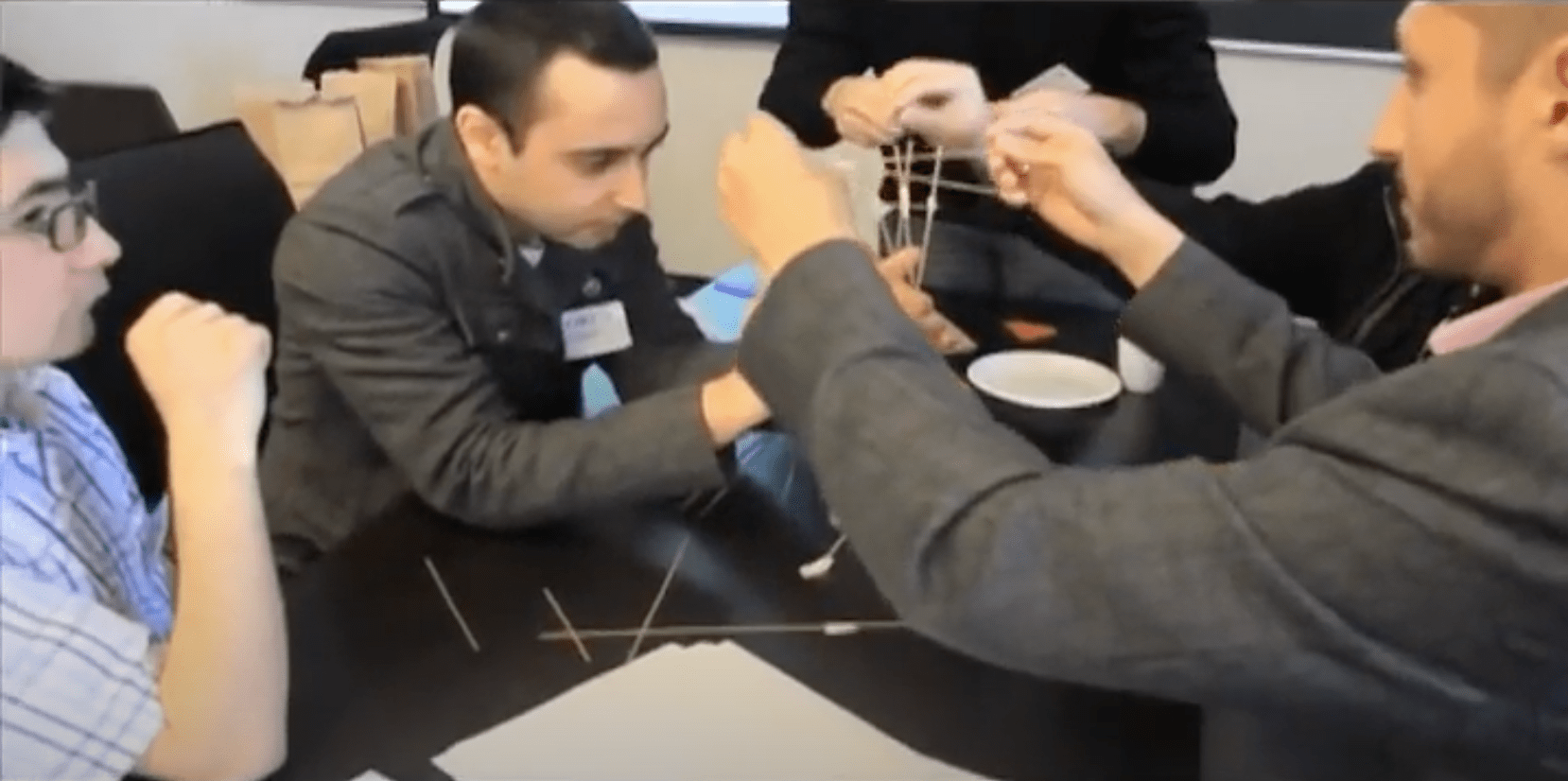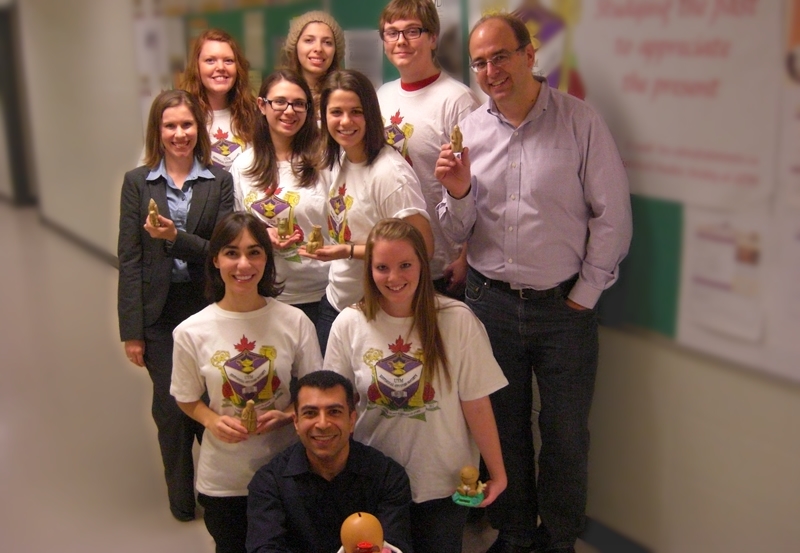At a recent keynote at the National Educational Computing Conference, Chris Lehmann, renowned speaker and educator in the area of technology and pedagogy, commented, “ Tools don’t teach, but they can change the way we teach.” For the students on Professor Shafique Virani’s research team, the ways in which they are learning and researching have certainly been reshaped by the range of technological tools they have been exposed to over the past few years through their many projects on Islam and Muslim Civilizations.

A still image from “Teamwork and Pluralism,” one of a number of videos made by Virani’s students, on the ViraniDreamTeam YouTube channel.
Every year, over a hundred undergraduate and graduate students apply to join Virani’s research team through the University’s Research Opportunity Program, Independent Studies courses and the Work-Study Program. This year’s roster brought together the talents of creative students from a range of disciplines, including religion specialists, sound engineers, web designers, computer programmers, film and video editors, voice actors, illustrators, and language students. Funding from SSHRC, the Ontario Ministry of Research and Innovation, and other grants has supported the team’s technological strengths, with several research team students attending events such as the TIFF Nexus New Media Literacies Conference, equipping them with a network of skills and partners they need to succeed in their projects.
Virani’s research team, or the “Dream Team” as its members warmly refer to it, seeks not only to conduct research into pivotal moments in Muslim history, but also to broaden the reach of their findings to a larger audience. The close knit team has collaborated on a number of wide-reaching projects, including the creation of a series of YouTube videos, audiobooks and podcasts. These researchers have worked to identify successful techniques used in award-winning audiobooks and to outline specific considerations that might make a podcast of a scholarly nature distinct from other types of recordings. These projects aim specifically to translate academic publications into formats more accessible and engaging for non-specialist audiences, and will soon become available through the University of Toronto’s partnership with iTunes U and Focus on Research.
Among the team’s longest-running projects is the creation of the iBrary Online, a digital repository of scholarly resources related to Islamic Studies meant to serve as a reference tool for academics and the public alike. The iBrary project highlights the pluralistic heritage of the Muslim world, as well as the exchange of its vibrant intellectual and scientific contributions throughout history. Students working on the iBrary project have conducted research into resources on Islamic history, art, architecture, literature, and philosophy, creating extensive databases featuring more than a thousand resources on Islamic law, the Qur’an, hadith (prophetic traditions) collections, languages, scholarly journals and dictionaries, as well as study-abroad language programs from around the globe. Work on the iBrary began in 2006 and will be completed in time for a launch in the near future.
In navigating the plethora of tools available for their projects, the team’s work often involves comparing and assessing available technologies to identify the tools most apt for their specific needs. Sustainability and extended product support are significant factors in weighing the options. For example, students working on cartography this year were forced to consider the fact that while Google Earth is among the most sophisticated mapping tools available online, it may not necessarily contain the features necessary for historical projects such as Virani’s interactive mapping application involving the diary of a 1923 Muslim traveller to Central Asia and China. Nonetheless the enormity of Google’s online presence and its relative stability in the past decade promise more lasting product support than might smaller software providers. Students working on this project therefore undertook careful research to determine which tools contain the necessary support for early 20th century geopolitical boundaries in order to make the expedition come to life online. Such projects have fostered in Virani’s research team a greater technological literacy and aptitude for problem solving specific to their projects and transferrable to their pursuits both within the academy and beyond.
For Virani’s research students, the integration of cutting-edge technology into their numerous projects has fostered the growth of their team into a community of exchange and collaboration, a space in which students not only learn and think in innovate ways, but collectively build upon their findings to produce tangible and engaging results.
Shanifa is a first-year doctoral student at the DSR and Research Coordinator for Virani’s research team. Her interests include Islamic mysticism, classical Persian literature, the religious landscape online, and the emerging world of the digital humanities.
Share what you’re reading on social media

